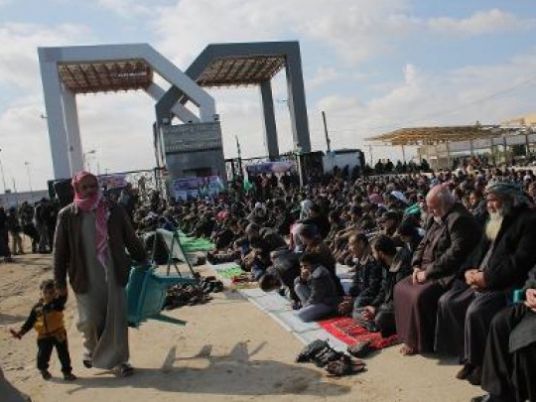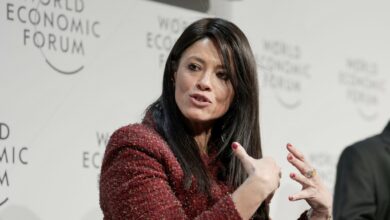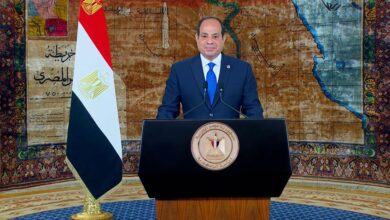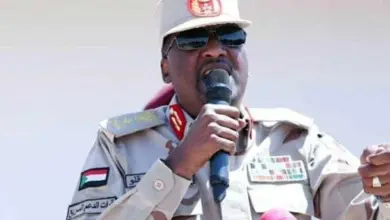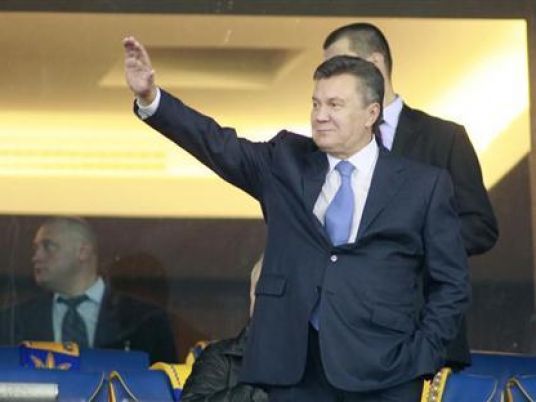
Ukraine on Thursday hosted top diplomats for a meeting of the OSCE security group overshadowed by two weeks of protests over its rejection of an EU deal, as demonstrators kept up the pressure on President Viktor Yanukovych.
Thousands of anti-Yanukovych protesters remained on Kiev’s central Independence Square which they have controlled and surrounded with barricades since a mass protest at the weekend.
The president, whose sudden U-turn not to sign an Association Agreement with the European Union sparked the protests, is on a visit to China where he hopes to win a new lifeline for the country’s ailing economy.
Several top foreign ministers, including US Secretary of State John Kerry, opted not to come to Kiev for the ministerial meeting of the OSCE after the government’s rejection of the deal which came under heavy Russian pressure.
However several key players in the Ukraine crisis, including foreign ministers Carl Bildt of Sweden, Radoslav Sikorski of Poland and Germany’s Guido Westerwelle were in Kiev for the meeting.
Also present was Russian Foreign Minister Sergei Lavrov, raising the prospect of a possible East-West clash.
Westerwelle pointedly visited the protests on Independence Square late on Wednesday and told reporters after meeting opposition leaders that the “gates of Europe” were still open for Ukraine.
“Ukraine has to be on board in Europe and the offers from Europe are still valid,” he said.
Addressing the opening of the Organisation for Security and Cooperation in Europe (OSCE) meeting, Ukrainian Prime Minister Mykola Azarov said the government was “ready for dialogue” with its opponents.
But he lashed out at what he said were “extremist forces” among the protesters and said the way to determine Ukraine’s future was through democratic elections.
Instead of attending the talks in Ukraine, Kerry made a brief but highly symbolic visit to neighbouring Moldova, which initialled the Association Agreement last month to set the country on the way to EU integration.
In a clear jab at Russia for pressuring Ukraine not to sign the agreement, Kerry said: “To the Ukrainian people, we say the same thing: you too deserve the opportunity to choose your own future.”
As well as seizing the square, protestors are also still occupying the Kiev city hall and are holding mass pickets outside the headquarters of the government and Ukrainian parliament.
The protests, known as the “Euromaidan” after the local name for Independence Square (Maidan), are the biggest demonstrations in Ukraine since the 2004 Orange Revolution which forced the annulment of fraud-tainted presidential elections initially claimed by Yanukovych and led to a new poll claimed by a pro-Western reformer.
Jailed opposition leader Yulia Tymoshenko, whose imprisoning is seen by the West as politically motivated, has gone on hunger strike to protest the government’s failure to sign the EU deal.
In a potentially significant move, Ukraine’s former presidents Leonid Kravchuk, Leonid Kuchma and Viktor Yushchenko united in an unusual statement to back the protests.
Yushchenko, who was elected as a result of the “orange” revolt, and Kravchuk have always supported the opposition and are staunch supporters of EU integration. But the involvement of Kuchma, president from 1994-2005, may be crucial given his close ties to Ukraine’s powerful oligarchs and continued political influence.
“We express solidarity with the peaceful civic actions of hundreds of thousands of young Ukrainians,” said their statement.
The demonstrators are led by a sometimes uneasy three-way opposition coalition of nationalist leader Oleg Tyagnybok, pro-Tymoshenko politician Arseniy Yatsenyuk and world boxing champion Vitali Klitschko who heads the UDAR (Punch party).
They have demanded the resignation of Azarov as well as early presidential elections, vowing to keep up the protests round the clock until their demands are met.
First Deputy Prime Minister Sergiy Arbuzov, 37, seen as a key member of the so-called “Family” of close allies around Yanukovych, said the government does not rule out discussing snap elections with the opposition.
“We have to hold negotiations,” he said in an interview with Ukrainian Channel 5 late Wednesday. “Then, when there are official proposals, (we have to) discuss them,” he said.
“They are not going to yield power, that’s just talk,” said protester Valeriy Vlasenko from Kiev, standing under snow on the Maidan, commenting on Arbuzov’s remarks.
The violent police crackdown on demonstrators at the weekend that left dozens injured including reporters had outraged the West and also appeared to further galvanise the revolt.
The interior ministry said on its Facebook page that the Interior Minister Vitaliy Zakharchenko had now “forbidden his subordinates to use force against peaceful protesters.”

